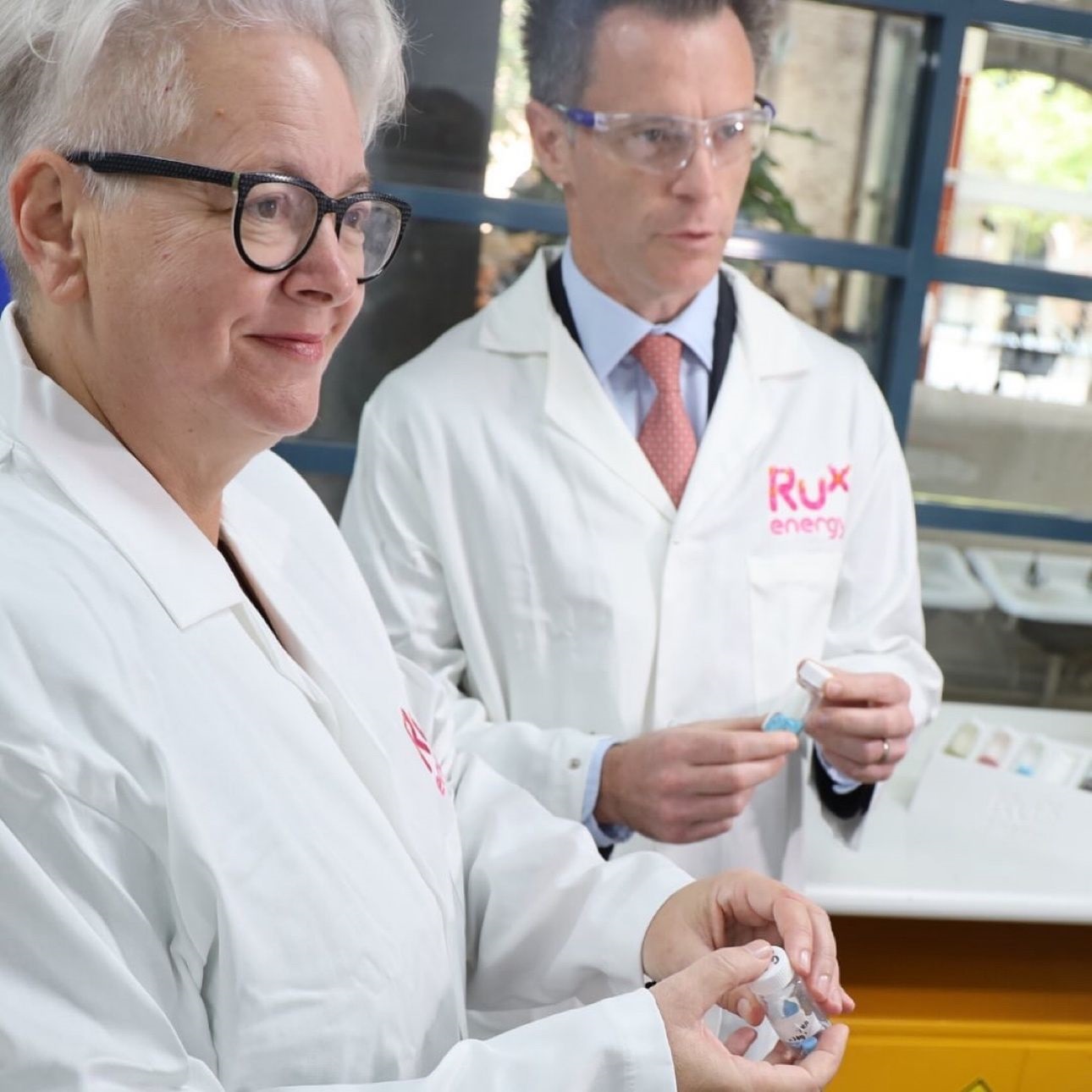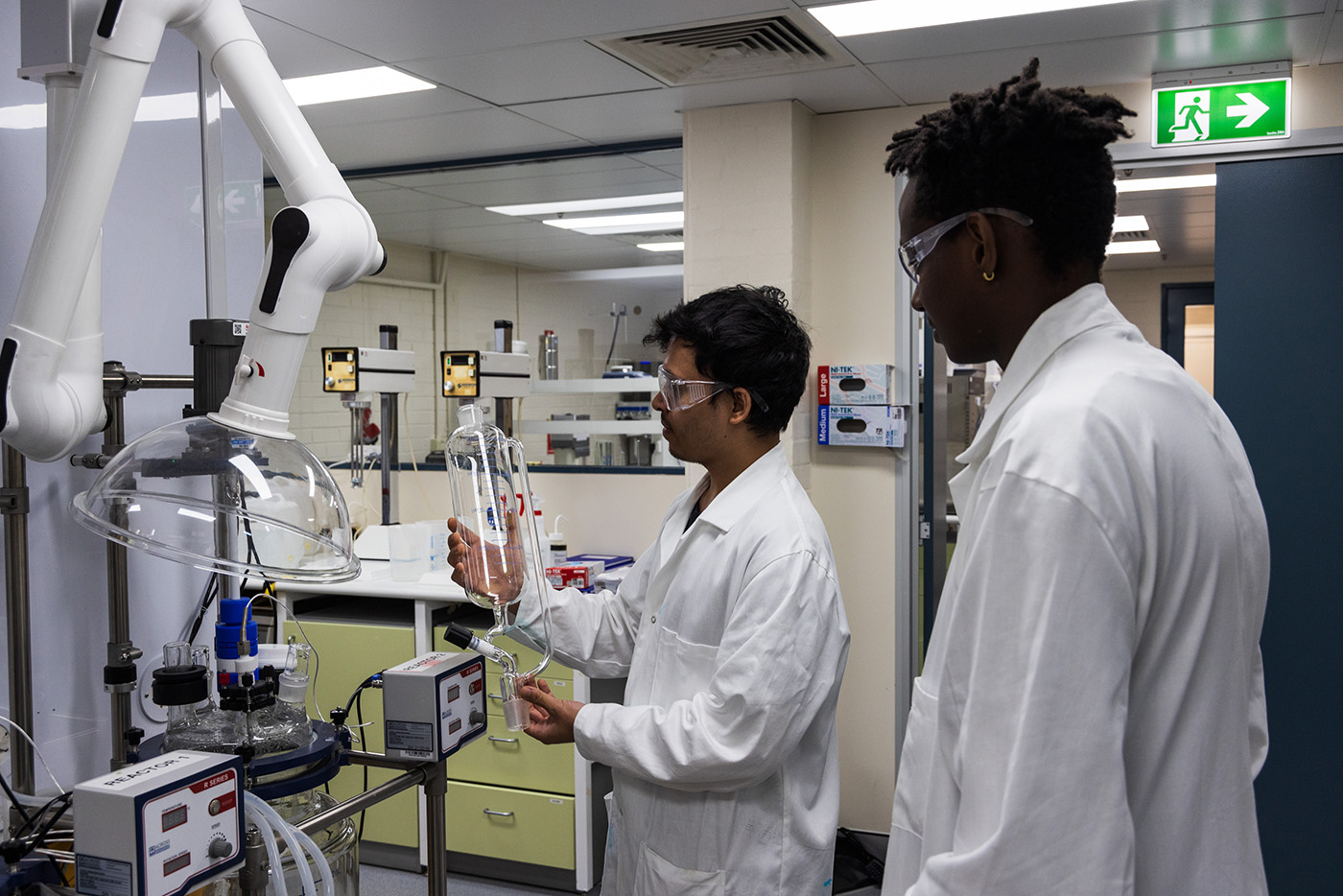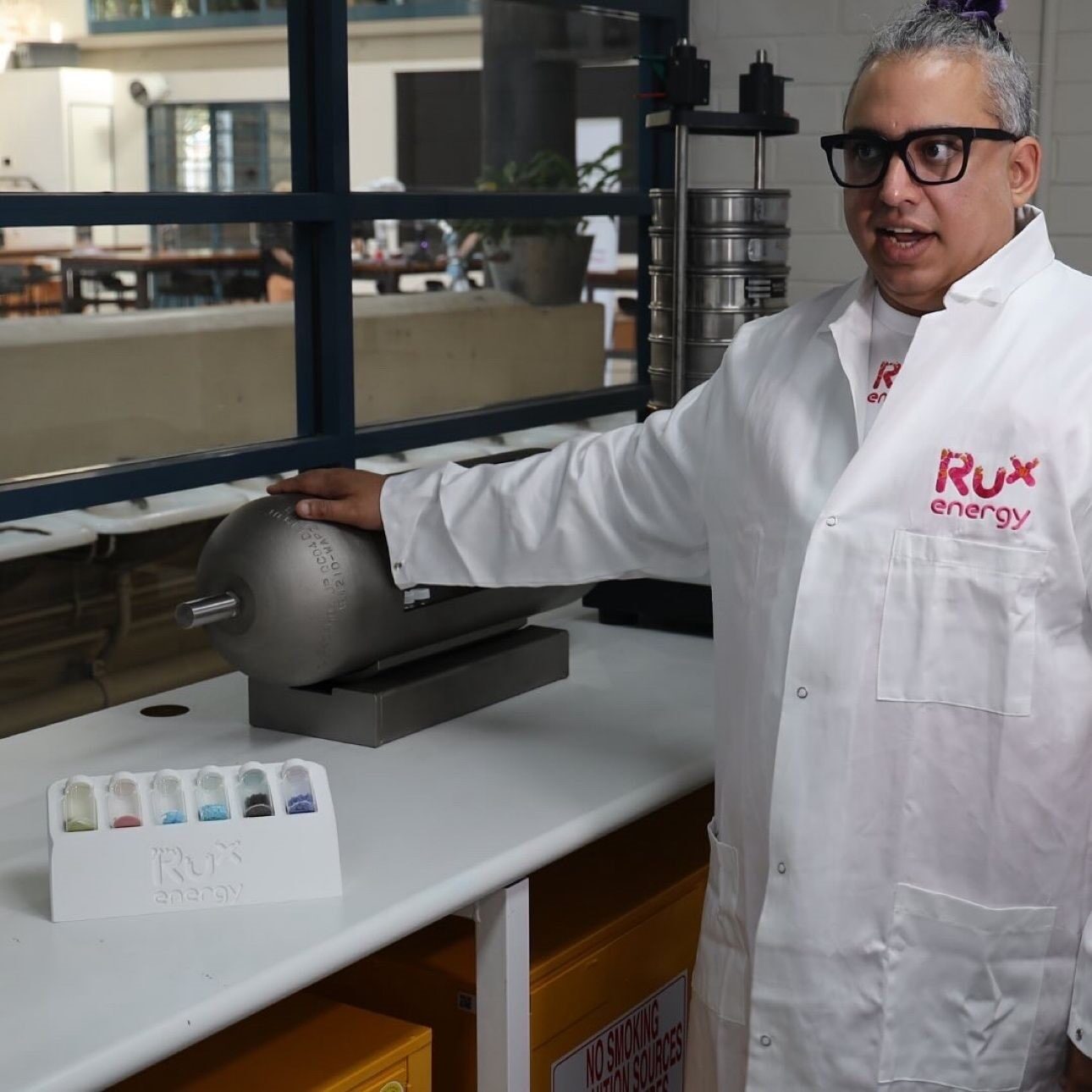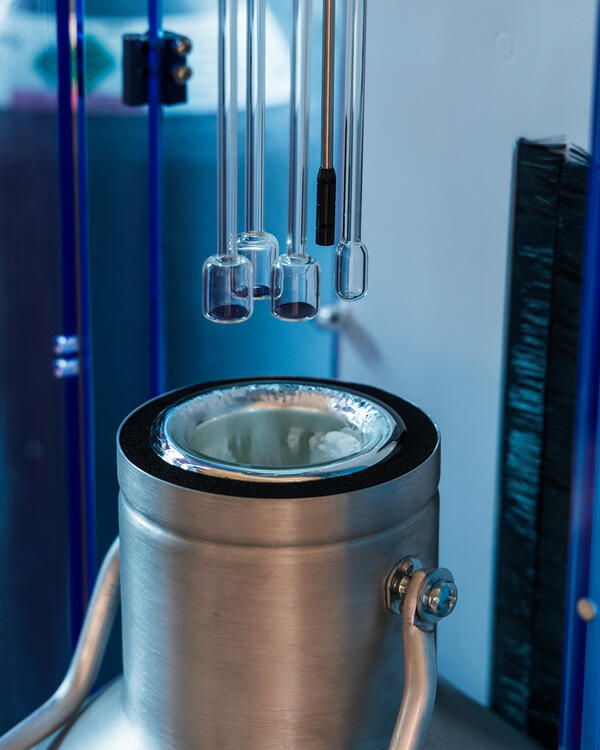Rux Energy is revolutionising hydrogen storage with support from the NSW Government’s Clean Technology Innovation grants.
The NSW Government is working with industry to develop a thriving green hydrogen industry in NSW and has provided funding to help Rux Energy develop a new method to store hydrogen by utilising metal-organic frameworks.

Fueling decarbonisation
The goal is to improve dispatchable hydrogen (H2) storage for heavy mobility and refuelling.
This will enhance the adaptability of hydrogen in the manufacturing and heavy vehicle industries, potentially leading to a solution for decarbonisation.
Hydrogen is a critical fuel source for NSW to reach net zero by 2050 for industries that can’t easily be electrified. It also provides significant opportunities for economic growth, more jobs and investment.
The challenge of hydrogen as a fuel source
Due to hydrogen’s small molecular size and high energy capacity (hydrogen has 3 times the energy content of petroleum) storing and transporting hydrogen in a safe and stable way is one of the biggest barriers to widespread use as an energy source.
Conventional hydrogen storage requires extreme-pressurisation or exceedingly low temperatures (-253⁰C).

The importance of collaboration
Rux Founder and CEO Dr. Jehan Kanga believes that by engaging upfront with these sectors, Rux has shown them that decarbonisation can be profitable.
“We want to be remembered as one of the few companies in the world really focussed on the hardest of the hard-to-abate sectors – the stuff no one wants to do, but which are the heaviest carbon emitters. We're working toward decarbonising tugboats, big locomotives, and the largest trucks on Earth. We just need to listen to them and get the tech right for them.”

A bold plan
Looking ahead to 2025, Rux Energy plans to scale up tenfold. The company is preparing for significant advancements including international collaborations and a strong commitment to global carbon emission reductions. They have a stretch target to help abate up to 10 million tonnes of carbon a year globally by 2030.
NSW is becoming a hub for clean technology innovation, supported by projects like Rux Energy. By focusing on local manufacturing, they’re strengthening NSW’s energy security and supporting a low-carbon future.
